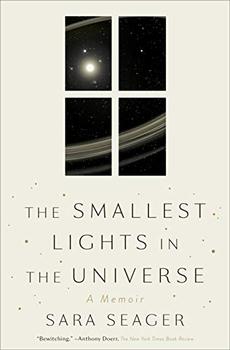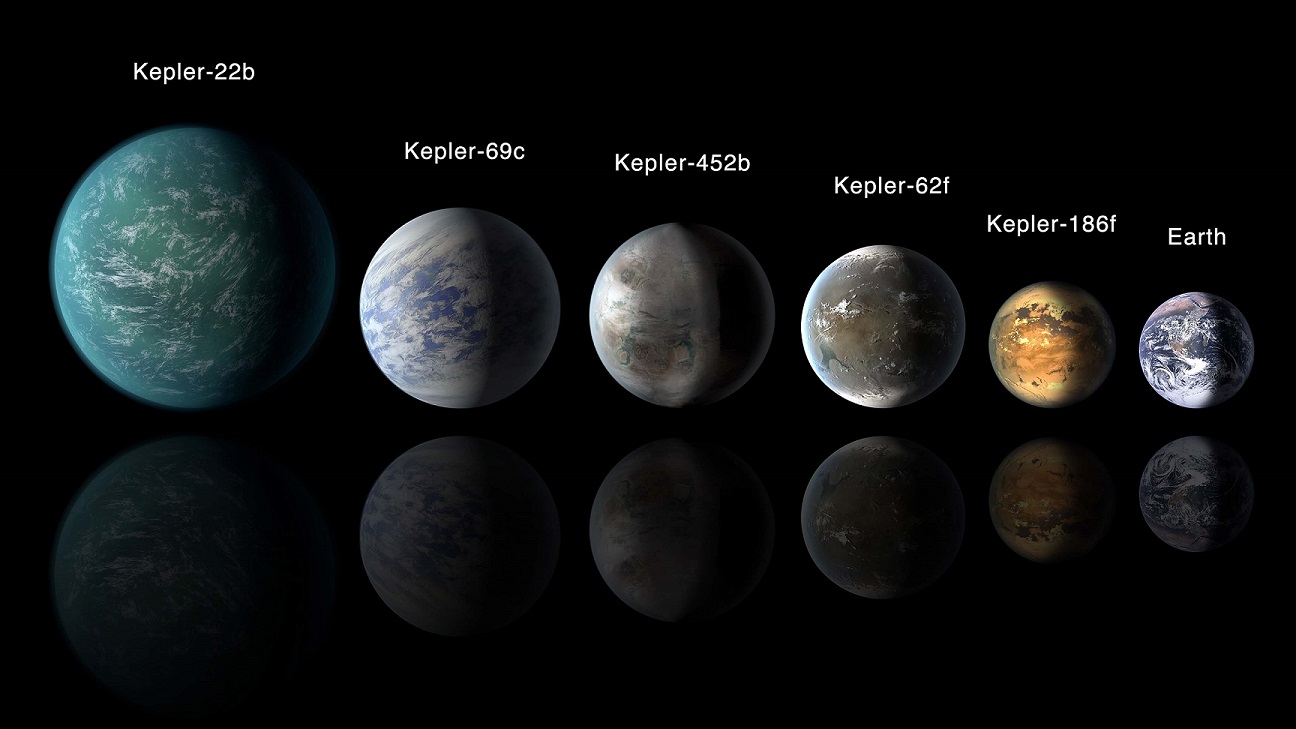Summary | Excerpt | Reading Guide | Reviews | Beyond the Book | Read-Alikes | Genres & Themes | Author Bio

A Memoir
by Sara SeagerThis article relates to The Smallest Lights in the Universe
 Sara Seager, the author of The Smallest Lights in the Universe, is an astrophysicist who served as a chairperson on NASA's Starshade Project, a mission to locate intelligent life on planets outside of our Solar System, a.k.a "exoplanets" ("exo" is a Greek prefix meaning "outside"). Exoplanets are challenging to discover, in part because the nearest ones are still light years away from Earth. As of this writing, astronomers have discovered over 4,000 exoplanets from 703 distinct planetary systems.
Sara Seager, the author of The Smallest Lights in the Universe, is an astrophysicist who served as a chairperson on NASA's Starshade Project, a mission to locate intelligent life on planets outside of our Solar System, a.k.a "exoplanets" ("exo" is a Greek prefix meaning "outside"). Exoplanets are challenging to discover, in part because the nearest ones are still light years away from Earth. As of this writing, astronomers have discovered over 4,000 exoplanets from 703 distinct planetary systems.
NASA describes the goal of its exoplanet research program as "to discover and characterize Earth-like planets around our nearest neighbors, search for habitable conditions on those planets, and uncover signatures of life." They've used a variety of tools to find these planets, perhaps most notably the Kepler telescope. Kepler was installed in space in March 2009 and decommissioned in November 2018. During its operation, the telescope discovered 2,682 exoplanets, plus an additional 2,900 possible planets awaiting confirmation from scientists. While the sheer number of discoveries is remarkable, the information Kepler gleaned about the terrain and composition of the exoplanets is perhaps even more significant. Some are gaseous planets, but many bear surface features similar to Earth's, boosting hope for the possibility of discovering life.
While their existence was surmised for centuries, scientists confirmed the first exoplanets in the 1990s. In 1992, two exoplanets were spotted orbiting a pulsar (a neutron star), and in 1995, scientists found the first exoplanet orbiting a main sequence star, which is the term for a star similar to our system's sun which fuses hydrogen into helium. This exoplanet, named 51 Pegasi b, was discovered by Swiss astronomers Michel Mayor and Didier Queloz, who, along with Canadian-American cosmologist Jim Peebles split the Nobel Prize in Physics in 2019 in recognition of their work. The astronomers used a spectrometer to find the exoplanet, which detects subtle shifts in the movement of a star that could have been caused by an orbiting planet's (or planets') gravitational pull. One of the most effective current methods of discovering exoplanets is the transit method, employed by telescopes like Kepler, which seek out changes in a star's brightness that could be caused by an exoplanet's orbit.
Sara Seager has been involved in numerous research projects, but one of her most significant contributions to her field is known as the Seager equation, which estimates the probability of locating intelligent life outside of our Solar System. An updated version of the Drake equation, established in 1961 by astronomer and astrophysicist Frank Drake, Seager's equation is not intended to provide a precise numerical figure, which would be impossible given that there are so many unknown variables. What it attempts to do instead is posit how we might find life on an exoplanet by searching for biosignature gases, meaning gases that may be the product of living organisms. Sara Seager has won numerous prizes for her work, including a MacArthur Fellowship and the Bok Prize in Astronomy from Harvard, her alma mater.
by Lisa Butts
Filed under Medicine, Science and Tech
![]() This "beyond the book article" relates to The Smallest Lights in the Universe. It originally ran in September 2020 and has been updated for the
August 2021 paperback edition.
Go to magazine.
This "beyond the book article" relates to The Smallest Lights in the Universe. It originally ran in September 2020 and has been updated for the
August 2021 paperback edition.
Go to magazine.




Common sense is genius dressed in its working clothes.
Click Here to find out who said this, as well as discovering other famous literary quotes!
Your guide toexceptional books
BookBrowse seeks out and recommends the best in contemporary fiction and nonfiction—books that not only engage and entertain but also deepen our understanding of ourselves and the world around us.